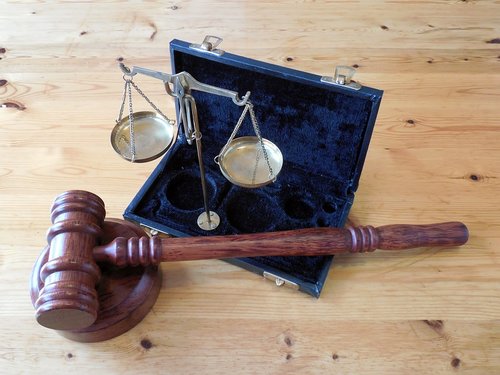Skip to:
- Give Today
- Contact Us
- Media
- Search
News & Stories
Leadership Development Program
Undergraduate Teaching Program
Common search terms
Halfway through my first ever term of teaching English, I decided to do something totally radical. I organised a mock trial week for my year 9 English classes.
The topic we were studying in English was persuasive techniques in speeches. What better way to allow students to demonstrate persuasive techniques? I put them in teams to argue for the guilt or innocence of a hypothetical student in a criminal trial.
I put together a case where a young girl shoplifted a pair of swimmers from K-mart.
The punishment? For some bizarre reason, two years’ imprisonment. Yes, there is a reason I am a teacher and not a criminal lawyer.
For that week I let the students loose on the law, supporting them to be as creative as possible in making their arguments on behalf of their client.
I encouraged them to look up historical evidence that supported their case, and even ‘create’ evidence to back up their argument.
Finally, the students ran the trial in front of a ‘jury’ of their peers, with the jury tasked with determining the defendant’s guilt or innocence. They also determined the length of the sentence handed down to the defendant.
This mock trial taught me many things, the most concerning being that many students believe it is totally plausible for hallucinogenic drugs to be snuck into someone’s sandwich without them knowing.
On a more serious note, I was surprised by the way in which this mock trial served to facilitate an incredibly nuanced discussion about law, crime and justice.
It became apparent to me that young people have a very strong sense of social justice and an understanding of what is right and wrong.
Many of the students at my school have in some way or another had contact with the criminal justice system. From this experience, they demonstrated highly developed understanding of the workings of justice (as well as the absence thereof).
Issues that were raised in the mock trial included:
This last was because of the criminal mindset it may entrench in them. Students also cited the exposure to damaging criminal behaviours it may facilitate.
Many students took a philosophical approach to the case.
As lawyers they questioned the validity of the laws themselves.
As jurors they had to balance their ethical beliefs against the constraints of the law in order to determine the sentence that they handed down.

I was humbled by the maturity with which my students approached these issues. I realised that what this mock trial had provided was much more than a vehicle for them to practice their persuasive speeches. Rather, it was a safe space where they could negotiate, explore and articulate their emerging beliefs and understandings about the nature of right and wrong.
My students had such a positive experience with the mock trials that they asked for more opportunities to be involved in such activities.
Together with some of the other Year 9 teachers I started an informal debating club at my school. This debating club brings me so much joy. There is a real kick that you get as a teacher seeing young people passionately debate social issues that are relevant to the world around them.
This term I am diving back into the world of mock trials. This time I am running a week-long criminal trial based on the themes in our class novel, To Kill a Mockingbird.
As I’m writing this I am only halfway through the trial week. Still, I am once again enthralled and filled with pride by the intellectual rigour and creativity my students are putting into assembling their arguments.
The kindness and empathy they are bringing to their analyses of those involved in the case.
Their constant questioning and curiosity about the validity of laws.
Their asking why the dispensation of justice is so heavily influenced by time and place.

In an education, law, and policy environment that has been rocked to the core by the revelations from Don Dale and Nauru, I think it is important for us, as teachers, to not shy away from allowing students to negotiate their perspectives on these issues in our classrooms.
The world isn’t going anywhere. Although we may be afraid to jump into these serious topics with our students I believe allowing them the opportunity to have safe, constructive discussions about these events is simply a part of our job.
I would consider my students developing core ethical beliefs and a sense of moral integrity as much of a success as increasing their literacy levels by a year.
If there is anything my experience with both mock trials and debates has reaffirmed to me it is that sometimes the best learning experiences aren’t those that come out of a textbook.
As the quote from the classic teacher movie goes, ‘No matter what people tell you, words and ideas can change the world’.